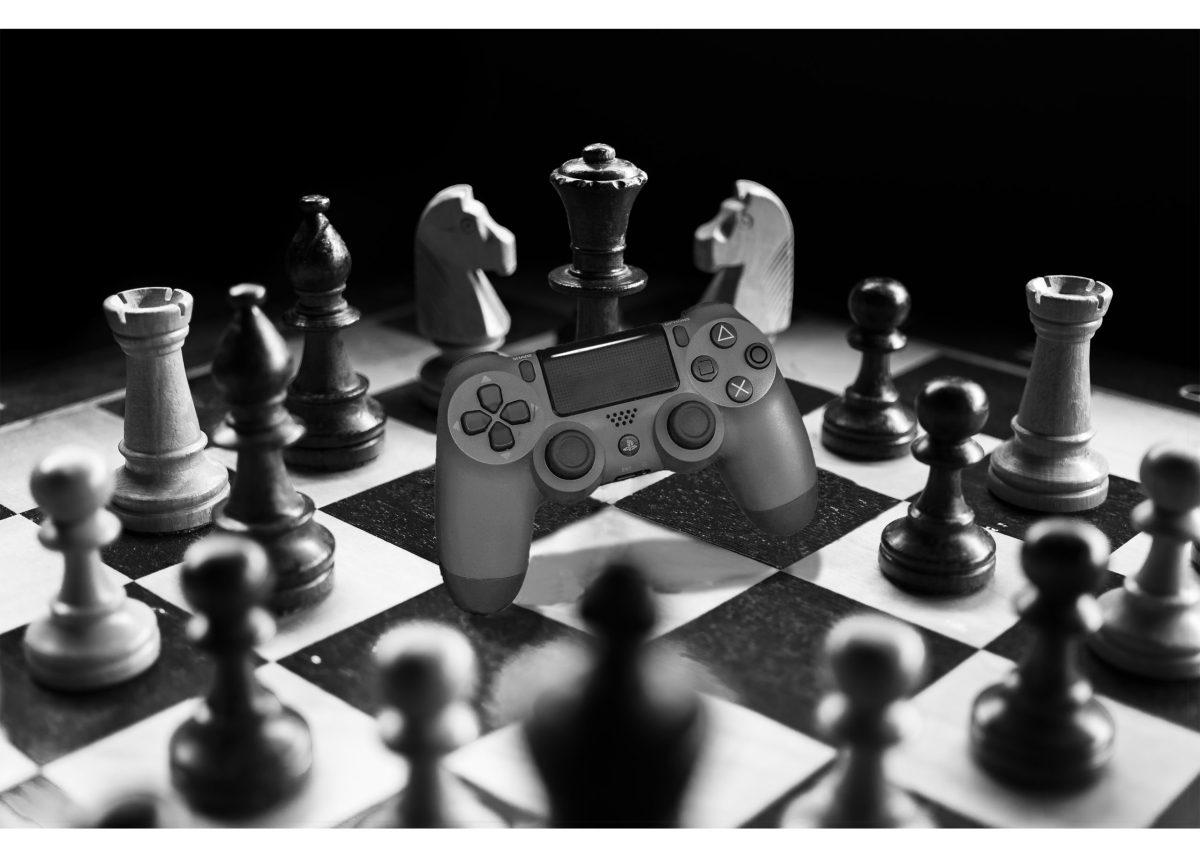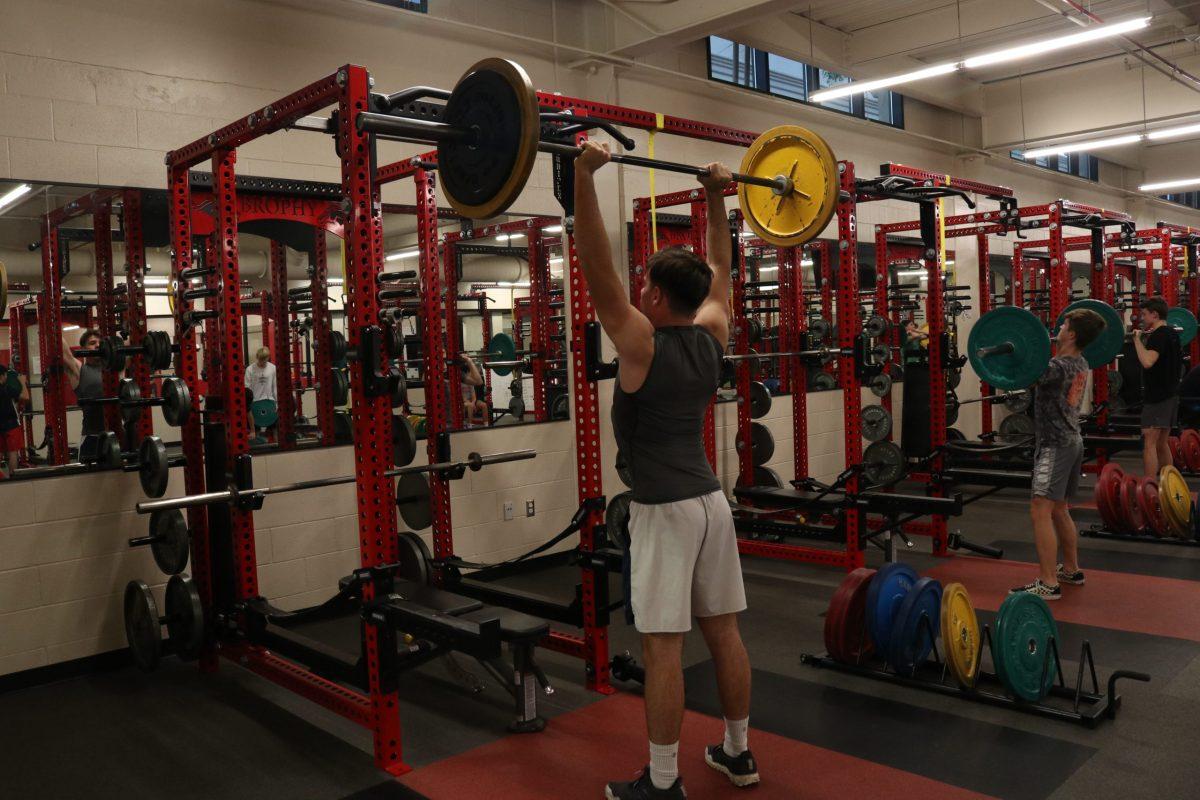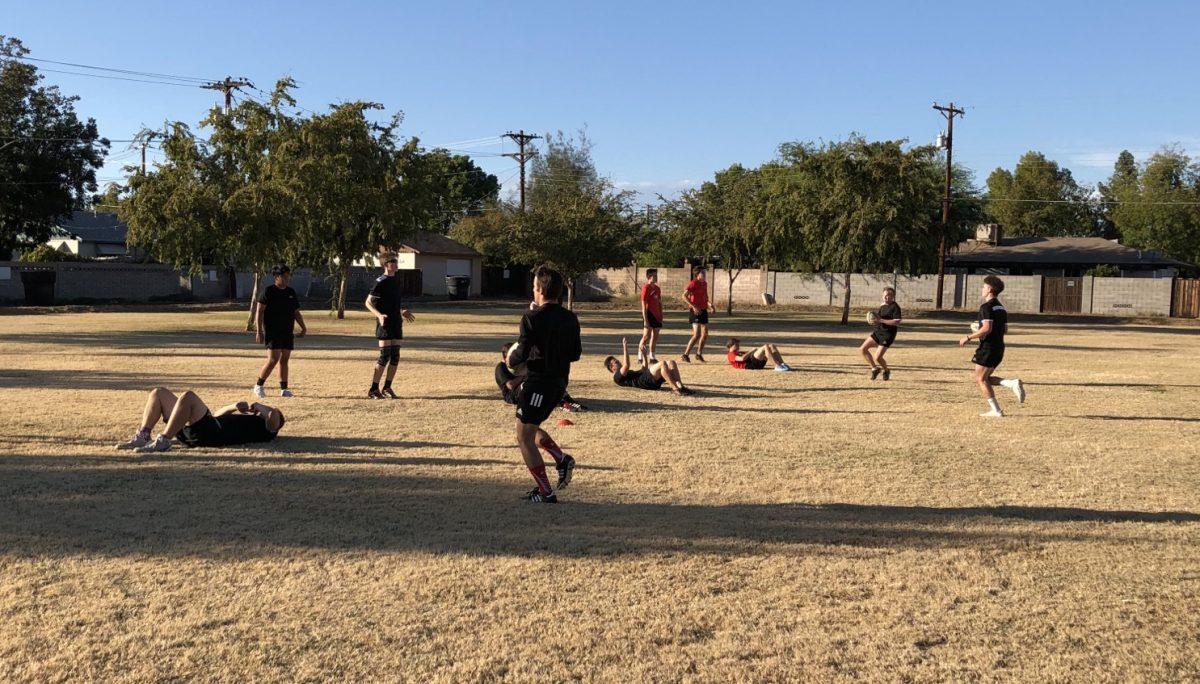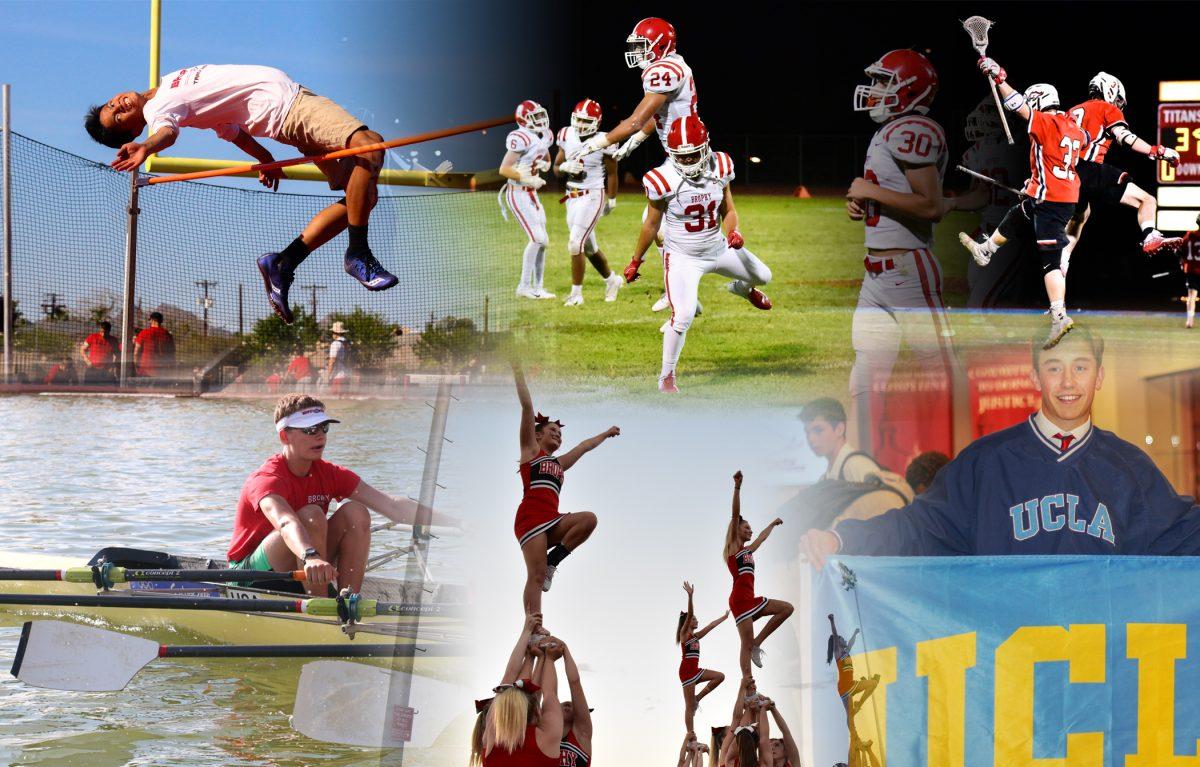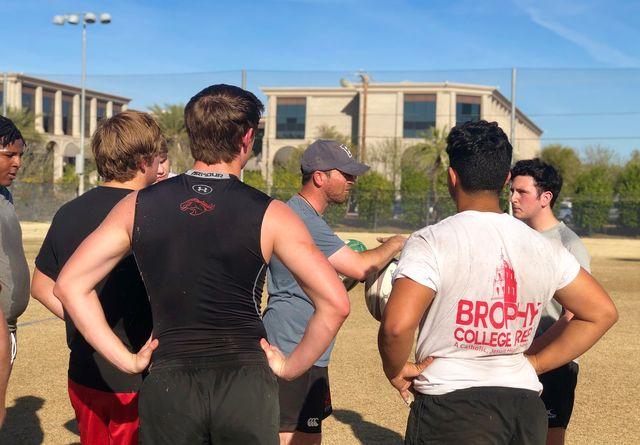Photo by Garret Van Wie ’22 | A chess board with a controller replacing a fallen chess piece shows their similarities.
By Garret Van Wie ’22
THE ROUNDUP
Chess and esports fans may soon begin to question why their awards and achievements are not displayed on the gym wall, next to the tennis team’s or basketball team’s.
Oxford Dictionary defines sport as “an activity involving physical exertion and skill in which an individual or team competes against another or others for entertainment.”
Cambridge Dictionary defines sports as, “a game, competition, or similar activity, done for enjoyment or as a job, that takes physical effort and skill and is played or done by following particular rules.” It also specifically lists football, baseball, and basketball as sports.
So while the definition of sports appears very vague when analyzed closely, one theme becomes apparent, all sports have physical exertion involved. Obviously, by stating that there is physical exertion it is clear that these definitions mean that there is a level of physicality that marks something as a sport.
According to most calorie calculators, if one plays traditional video games (excluding Wii Sports or such similar and less popular sports) for two hours, they can burn up to 172 calories. Comparatively, rugby burns 1426 calories in the same two hour time frame and when sleeping for two hours, one burns 163 calories.
The difference between playing traditional video games and sleeping is a difference of nine calories. A startling truth emerges that playing video games, burns almost no extra calories that wouldn’t naturally be used by the body in natural functions and processes such as breathing, pumping blood, etc…
Therefore, it becomes clear that chess and esports do not meet the physical requirement that all other sports meet.
The AIA appears to agree as well, listing esports and chess, along with things such as theater and robotics, in a category separate from its sports section, instead listing them as activities.
So chess and esports are not sports, but does that mean that they don’t deserve a place in the Robson Gym? Since when were only sports allowed to be celebrated?
“How do you recognize the competitive clubs, especially those that now compete in AIA event? Where does archery fit?” said Mr. Oldani, who along with coaching, is the head of all activities at Brophy.
With regards to esports, chess, and speech and debate, he said, “we’re gonna honor those as activities.”
Due to the vagueness of what a sport is Mr. Oldani says “institutionally we have operated with if the AIA says it’s a sport, it’s a sport, if it says it’s an activity, it’s an activity.”
He described the speech and debate trophy case as one of the preliminary steps Brophy took to be more inclusive of activities and recognize their value.
“There are more traditions associated with honoring sports, than their are traditions honoring activities,” said Mr. Oldani, citing a major problem that comes with the later honoring of activities separate from sports.
“The piece of recognizing kids talents is something we seek ways to do, and there is a challenge,” he said.
However, a plan to provide activities with the equivalent of what the Robson gym is for sports is already underway.
“We are in the process of starting renovations on the Student Activity Center with one of the goals being to install video screens, in such a way that we can display digital posters,” said Mr. Oldani.
Perhaps more thought should go into whether sports should be valued above activities and whether or not, the difference altogether matters that much. In both cases, students learn teamwork, camaraderie, and skills vital to succeeding in life, and while sports may have more physicality, that is not the only thing that matters. Ability to adapt, think quickly, speak eloquently and so many other qualities are more present in speech and debate or esports than rugby or football.









